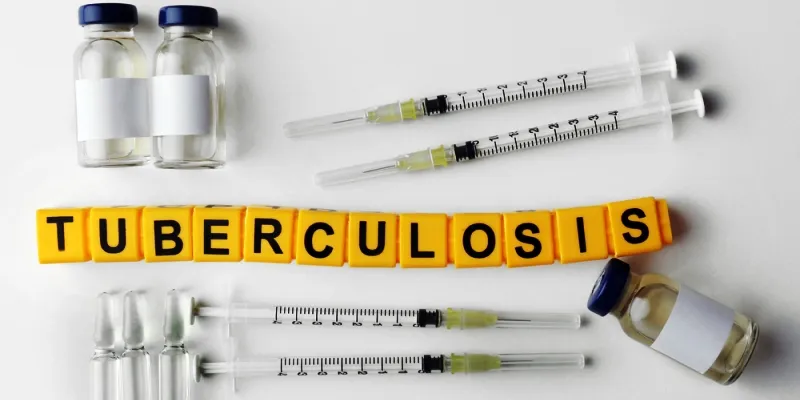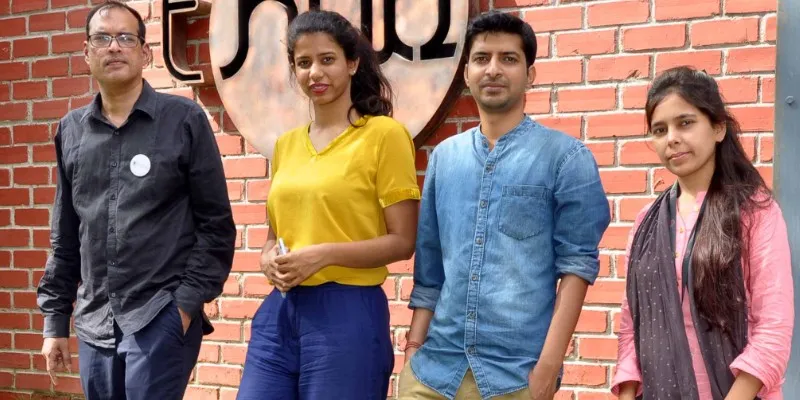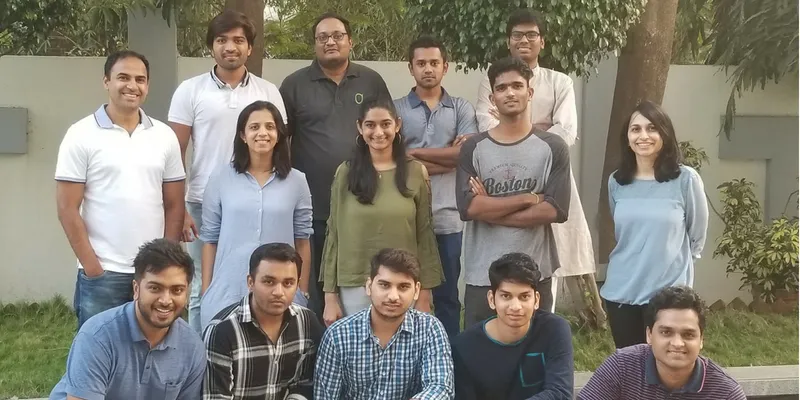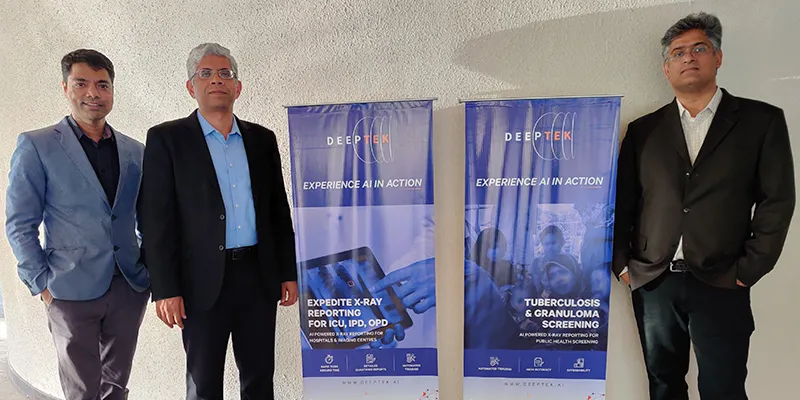[World Tuberculosis Day] These 5 startups are developing solutions for faster TB diagnoses
On the occasion of World Tuberculosis Day, YourStory brings to you a list of startups developing solutions for faster diagnoses and treatment of TB in India
A severe global health crisis that needs to be addressed, WHO classifies tuberculosis (TB) as one of the top 10 causes of death across the world. In India itself, TB is one of the major reasons for death across the country even though it is completely curable if diagnosed and treated in time.
Data from the Indian Journal of Community Medicine reveals that about 4.8 lakh people lose their life to TB in India every year. It also revealed that India records more than a million “missing” cases every year that do not get notified.

Representational Image
A report by Indian Express revealed that the nine countries (including India), which contribute to 60 percent of the global TB burden, recorded a massive decline in the diagnoses and treatment of TB.
The report revealed that TB notification was down by 25 percent in India last year. However, the numbers have reportedly picked up since December 2020.
To raise awareness about the health, social, and economic consequences of the disease, every year, on March 24, World Tuberculosis Day is observed. On this day in 1882, Dr Robert Koch had announced the discovery of the TB bacteria, Mycobacterium tuberculosis.
On this day, YourStory brings to you a list of technology startups in India developing solutions for faster diagnoses and treatment of TB.
Hyderabad-based medtech startup Docturnal was founded in 2016 by Arpita Singh, Rahul Pathri, and Vaishnavi Reddy. The startup is developing point-of-care and non-invasive screening and prognosis solutions for pulmonary tuberculosis and pneumonia.
Its flagship product TimBre is a TB screening app, which analyses the cough sound to diagnose the disease.
TimBre records the cough sounds of an individual along with their demographic, clinical, and socioeconomic variables. The data is then processed in real-time, and leveraging machine learning, the app can determine if the cough is TB positive or negative.
Users need to just download and open the mobile app and cough near the device’s microphone. The recorded sound will be analysed and shared with partner medical labs or doctors for verification. The results are then shared with the user on the app along with the next steps to be taken by them.
To help combat the coronavirus pandemic, the startup also repurposed the app and launched coVawe to help users pre-screen them for COVID-19 infection from the comfort of their homes.

Docturnal Team [Image Credit: Docturnal]
Founded in 2019 by Praapti Jayaswal and Avlokita Tiwari, New Delhi-based AarogyaAI offers AI-enables SaaS, which can diagnose drug-resistance in tuberculosis patients within a few hours.
According to the startup, there is a lack of solutions to diagnose drug-resistant tuberculosis quickly. Even though TB is curable, it takes too long to be detected. Treating the disease can also take up to or more than two months. The situation can worsen if patients turn out to be drug-resistant.
AarogyaAI is aimed at providing a faster diagnosis of drug-resistance in patients by uploading a DNA sequence of the patient to its software. Its machine learning algorithm analyses the DNA and gives a report about the patient’s comprehensive drug susceptibility status.
Backed by UK-based Entrepreneur First, AarogyaAI has also bagged the BIRAC TiE Women in Entrepreneurial Research Award 2020 and Best Pitch Award from Shakti: The Empathy Project.
NextGen Invitro Diagnostics Pvt Ltd
Gurugram-based NextGen Invitro Diagnostics (NGIVD) was founded in 2015 by Vivek Chandra and Sushil Mehta. The startup aims to provide affordable, easy, and accurate diagnoses of infectious diseases by using advanced multiplexing technology that can detect multiple disease biomarkers using a single sample.
NGIVD’s TB-Lamp (loop-mediated isothermal amplification) solution — produced in partnership with Germany-based Human Diagnostics Worldwide — enables easy DNA extraction and faster diagnoses of TB.
WHO recommends a TB-Lamp-based solution as a replacement for microscopy for the diagnosis of pulmonary TB among adults.
According to NGIVD, TB-Lamp can be used at peripheral labs, thereby enabling diagnoses to reach patients even in remote parts of the country. The company claims that the diagnosis time is reduced from one week to just 1.5 hours.
Apart from Tuberculosis, it also offers multiplexing disease diagnosis platforms for Malaria and Leishmaniasis.
Founded in 2016 by Dr Pooja Rao and Prashant Warrier, Mumbai-based Qure.ai is using AI to interpret radiology scans and enable faster diagnosis.
The startup is leveraging deep learning to diagnose diseases from radiology and pathology imaging and also create personalised cancer treatment plans from psychopathology imaging and genome sequences.
Qure.ai’s qXR is a CE-certified automated chest X-ray interpretation tool that is used for screening for classical primary pulmonary TB and other pulmonary, hilar, and pleural abnormalities.
In an earlier interaction with YourStory, Prashant had said, “Using our solution qXR for an AI-based interpretation of chest X-rays can make TB diagnosis available even in the remotest parts of the country at a low cost.”
Last February, the healthtech startup raised $16 million led by Sequoia India, with participation from MassMutual Ventures Southeast Asia.
Amid the COVID-19 pandemic, the startup launched two solutions — a repurposed tool to interpret an X-ray to detect COVID-19 signs, and an app-based solution for contact tracing and remote triaging of coronavirus patients.

Team Qure.ai [Image Credit: Qure.ai]
Pune-based DeepTek founded in 2018 by Amit Kharat, Ajit Patil, and Aniruddha Pant is aimed at developing AI-based tools for medical imaging.

DeepTek co-founders (from left): Amit Kharat, Ajit Patil and Aniruddh Pant [Image Credit: DeepTek]
Its AI-based Genki solution is a TB detection and prescreening tool which provides "end-to-end imaging workflow". It uses deep tech to empower the imaging experts and interpret X-ray reports to diagnose TB early.
Apart from this, the startup claims Genki can also be used to diagnose COVID-19.
In an earlier interaction with YourStory, Amit had said, “Our AI models diagnose over 15 medical conditions and produce auto-generated reports. The software provides imaging experts with the option to approve these reports or make modifications to them. These modifications are again given as input to the AI models, forming a feedback loop that allows our models to continuously learn and improve.”
The startup claims to be serving over 50 hospitals and imaging centres across the world.
Edited by Saheli Sen Gupta


![[World Tuberculosis Day] These 5 startups are developing solutions for faster TB diagnoses](https://images.yourstory.com/cs/wordpress/2015/12/yourstory-tuberculosis.png?mode=crop&crop=faces&ar=2%3A1&format=auto&w=1920&q=75)
![[World Oral Health Day] This Bengaluru-based startup is bringing dental services to your doorsteps](https://images.yourstory.com/cs/2/b094ec506da611eab285b7ee8106293d/Founders6-1616153960687.jpg?fm=png&auto=format&h=100&w=100&crop=entropy&fit=crop)
![[World Oral Health Day] Meet the 5 dental tech startups that are innovating to help you manage your oral health](https://images.yourstory.com/cs/wordpress/2016/01/yourstory-oral-health.jpg?fm=png&auto=format&h=100&w=100&crop=entropy&fit=crop)





